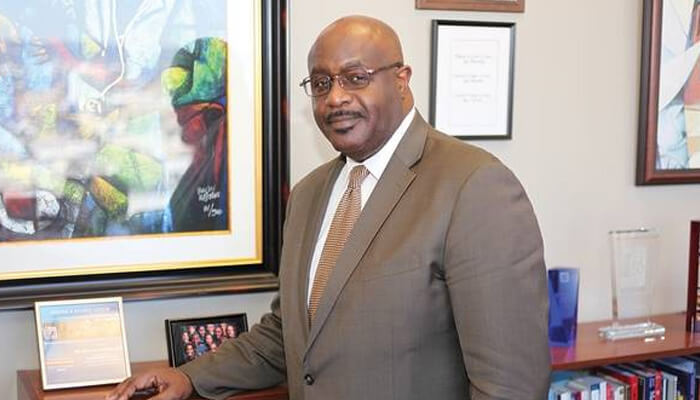Be A Change Agent
Be A Change Agent
After his time at Dartmouth, Ronald Copeland went on to become a highly successful general surgeon for more than thirty years. He is now the Senior Vice President of National Equity, Inclusion and Diversity Policy and Strategy, and Chief Equity, Inclusion and Diversity Officer at Kaiser Permanente. He works to inform medical practitioners about how to recognize and dissolve biases that impact their work. He participates in mentorship programs for pre-med and medical students and serves on multiple nonprofit boards. Given all he does, he does not make it back to Dartmouth’s campus very often. He notes, however, that Dartmouth gave him the ability to develop his leadership skills so that that he would be able to lead the groups of people that he does currently.
As President of the AAm he observed and contributed to the creation of the first Black Alumni Conference and as a mentor in the A Better Chance Program, he was able to learn the ins and outs of mentorship and the responsibilities that come with that. He has now taken that practice, combined it with his lifelong passion for activism (which he has had since his early days in Rochester, NY) and built a career of educating others on their/society’s biases so that the world, specifically the medical world, can be more self-conscious and appreciate the differences between people rather than fear them.
As a result of his experience at Dartmouth and of the world beyond campus, Dr. Copeland has one main piece of advice for current and future Black Dartmouth students:
“No matter what your academic focus is, and your degree pursuit, as a professional, skilled person in that area, cultivate yourself as a leader and a change agent, because there are many problems to solve. They’re big and complex and you need an increasing brain trust to do that. And given that Dartmouth has invested in making the campus experience diverse as possible in many dimensions, leverage that as much as you can and understand how to work and collaborate with people who are different but may share a similar vision and aspiration, and understand how to do that in a collective way because that's what the world will offer you as opportunity, and in the real world that’s how you actually get things done."
Dr. Ronald Copeland

